Search Results
Showing results 21 to 40 of 52

Building Blocks
Source Institutions
In this activity (page 32 of PDF), learners investigate the nutritional needs of healthy bones and muscles.
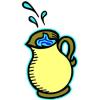
Aesop's Arithmetic
Source Institutions
In this activity (located on page 9 of the PDF), learners are introduced to Aesop's fable, "The Crow and the Pitcher." In the story, a clever crow drops pebbles into a pitcher to cause the water level
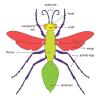
Invent an Insect
Source Institutions
In this creative activity, learners will find out what makes an insect an insect by studying examples of insect adaptations and by examining why there are so many different types of insects.
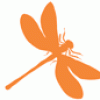
Go Bug!
Source Institutions
By playing a card game similar to "Go Fish," but based on the stages of metamorphosis, learners will be able to see how insects change in form as they grow and will consider the advantages of undergoi
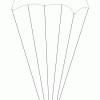
The Parachuting Egg
Source Institutions
In this activity, learners work in groups to design a parachute out of household items that keeps an egg secure when dropped from a certain height.

Coral Snapshots: Biodiversity in Marine Protected Areas
Source Institutions
In this data activity, learners analyze data from coral reef snapshots taken by scientists at the Virginia Institute of Marine Science.

Multitasking Mania
Source Institutions
In this activity, learners conduct scientific research on multitasking. Learners determine if multitasking with media while doing homework affects their ability to successfully complete the homework.

The Carbon Cycle and its Role in Climate Change: Activity 2
Source Institutions
In this activity (on page 7), learners explore the meaning of a "carbon sink." Using simple props, learners and/or an educator demonstrate how plants act as carbon sinks and how greenhouse gases cause

Shower Estimation
Source Institutions
In this activity, learners calculate their water usage (in cups and galloons) during an average shower. Learners also chart and analyze water usage during showers in their households.

Fill it to Capacity
Source Institutions
In this math lesson, learners rotate through six estimating and measuring centers. First, learners read the book, "Room for Ripley" by Stuart J.
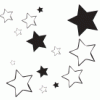
Counting Your Lucky Stars
Source Institutions
In this activity, learners sample a star field to estimate the number of stars in the universe.

Describing Oak Leaves
Source Institutions
Learners work in teams to investigate how scientists use physical characteristics to classify living things.

Mapping the Classroom
Source Institutions
In this activity, learners discover the importance of maps and scale as they work together to create a map of the classroom.

The Carbon Cycle: How It Works
Source Institutions
In this game, learners walk through an imaginary Carbon Cycle and explore the ways in which carbon is stored in reservoirs and the processes that transport the carbon atom from one location to another
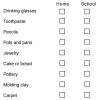
Mineral Hunt
Source Institutions
In this activity, learners search for various kinds of items made from minerals around their home or school, including toothpaste, wall paint, kitty litter, and bricks.
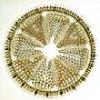
Diatom Ooze: Ooze Clues
Source Institutions
In this activity, learners will plot the distribution of various oozes using information from sediment maps.

Pitch, Roll and Yaw: The Three Axes of Rotation
Source Institutions
In this activity (page 87 of the PDF), learners move their bodies to better understand the three axes of rotation: pitch, roll and yaw.
Any Year Calendars
Source Institutions
This PDF contains 12 calendars (12 months). Each month contains activities about math. Things to do on familiar holidays (like July 4), less common holidays (like Backward Day), and any day.

The Ins and Outs of Tides: Learn About Causes and Predictions
Source Institutions
In this activity, learners will compare predicted and observed tides using data from The National Oceanic and Atmospheric Administration(NOAA).
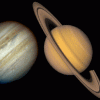
Planet Surfing
Source Institutions
In this astronomy activity (page 6 of the PDF), learners will compare and contrast two planets in the solar system using data obtained from the internet.
